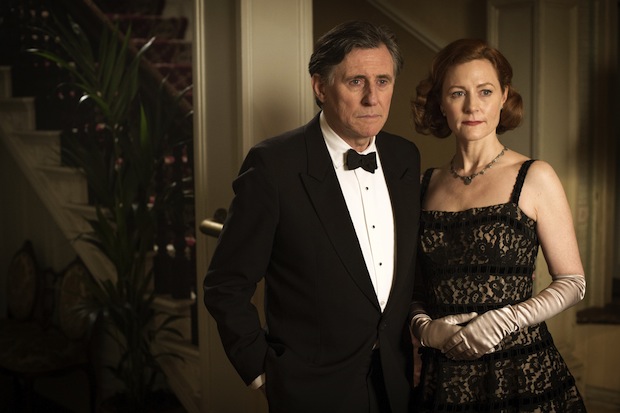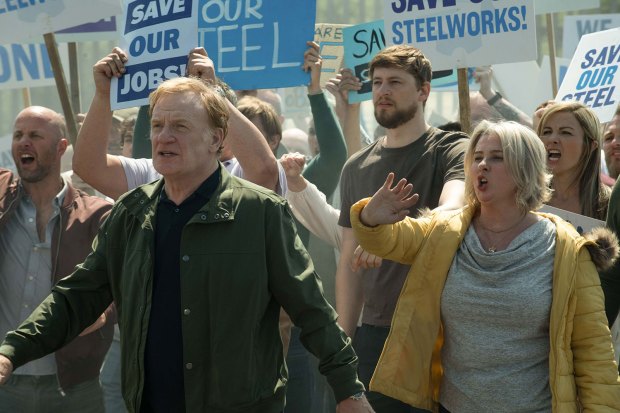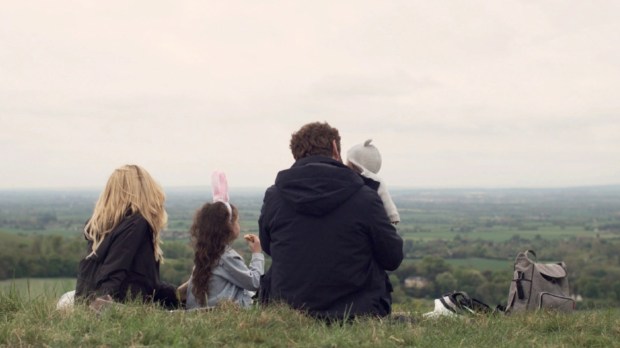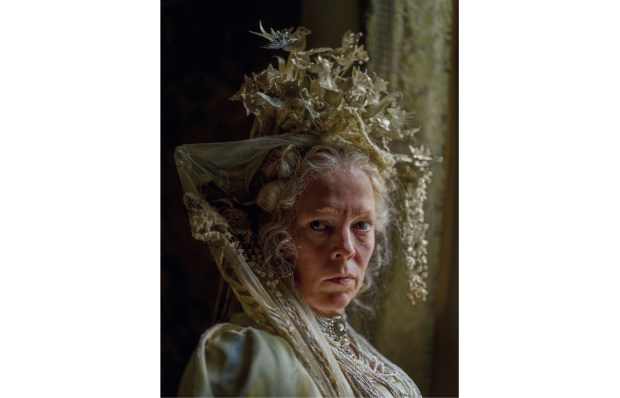The work of John Banville — Booker-winning novelist and impeccably high-minded literary critic — might seem an unlikely source for a primetime crime series. But since 2006, under the telling pseudonym of Benjamin Black, he’s also published a series of Celtic-noir novels set in 1950s Dublin about a pathologist-sleuth known, even to his intimates, only as Quirke.
To the understandable annoyance of full-time crime writers, Banville describes these books as ‘a kind of relaxation’, banging them out at a brisk 2,000 words a day compared with the Flaubertian 200 he manages for his more serious fiction. Yet, if this led any viewers to hope for an action-packed thrill-fest from Quirke (BBC1, Sundays), they’ll have been disappointed. Instead, the series occupies the slightly perilous territory between the bravely unhurried and the rather too slow.
In a definite TV coup, Gabriel Byrne plays Quirke himself, a hard drinker with plenty to drink about. Before being adopted by Judge Garret Griffin (Michael Gambon — another coup), he was brought up in one of Catholic Ireland’s ‘orphanages’ for illegitimate children. His wife Delia died in childbirth and he gave away their daughter Phoebe to his brother Mal (Nick Dunning) and his wife Sarah (Geraldine Somerville) — not only Delia’s sister, but also Quirke’s true love all along. (As a rule, every scene between Sarah and Quirke is full of sexual yearning, while those between her and Mal are more like those Spitting Image sketches of John and Norma Major eating their peas.)
In the circumstances, it may seem surprising that Quirke has time to notice any crimes, let alone solve them — but luckily they tend to overlap with his other concerns. On Sunday, for example, the 20-year-old Phoebe (Aisling Franciosi) continued her plucky quest to be a modern woman — no easy feat in Fifties Dublin — by going to the pub with a man who might as well have had the word ‘Cad’ tattooed across his forehead. (As things stood, he had to make do with being English.) Leslie White’s fairly ornate MO was to seduce women, addict them to drugs, send them to get more drugs from a doctor who took nude photographs of them by way of payment, and use the photos to blackmail their families. Having dismissed his previous victim with a brusque, ‘It’s over, sorry and all that,’ Leslie (Lee Ingleby) soon turned his roguish charms on Phoebe. ‘I adore convent girls, they have such a well-developed sense of sin,’ he explained — before helping her develop it further.
Quirke’s commitment to the noir genre certainly can’t be faulted. Faced with the endless rain, the male characters constantly pull down the brims of their trilbies and turn up the collars of their trench coats. The authorities — led of course by the Catholic Church — combine utter rottenness with total invulnerability. Only after more than an hour of the first episode did anybody refuse the offer of a cigarette.
In one important respect, though, the commitment feels too literal. Keeping virtually all the scenes somewhere between crepuscular and just plain dark means that the programmes are far more monochromatic — or, if you prefer, visually dull — than if they were in black and white. (There’s been some Jamaica Inn-style controversy about Quirke being difficult to hear, but I wonder if the real problem is that the actors’ lips are so hard to see.) Add in the largely workmanlike dialogue and that lack of pace and it’s no wonder that despite its qualities — Byrne’s unsurpassable world-weariness, the strong sense of time and place — the series ends up feeling somewhat underpowered.
Still, if it was boundless energy you were after, Dinner at 11 (Channel 4, Monday) had the neat idea of gathering a group of 11-year-olds for a dinner party and seeing what they said in the absence of grown-ups. Admittedly, the group chosen did seem uncommonly bright and articulate. Even so, the result was a winning portrait of the time between childhood and adolescence — as well as alarming proof of the fact that 11-year-olds don’t miss much. ‘My dad’s an entirely different person when he’s not drunk,’ one boy pointed out. ‘I’ve never doubted that he loves me, but he’s got a problem with alcohol.’
At times, the conversation took on a nostalgic tone, as the participants looked back on lost pleasures and past follies. Nonetheless, what made the show so touching was the visible pleasure they took in being with people as smart as they were. Leading the way here was the bow-tied Kain, who has trouble at school with bullies (‘They blame it on their ADHD’) but could now give full vent to such unexpectedly middle-aged worries as whether Facebook and Twitter are replacing proper human relationships. More unexpectedly still, he finished the programme by leading the assembled company in a rousing version of George Formby’s ‘When I’m Cleaning Windows’.
Got something to add? Join the discussion and comment below.
Get 10 issues for just $10
Subscribe to The Spectator Australia today for the next 10 magazine issues, plus full online access, for just $10.
You might disagree with half of it, but you’ll enjoy reading all of it. Try your first month for free, then just $2 a week for the remainder of your first year.














Comments
Don't miss out
Join the conversation with other Spectator Australia readers. Subscribe to leave a comment.
SUBSCRIBEAlready a subscriber? Log in